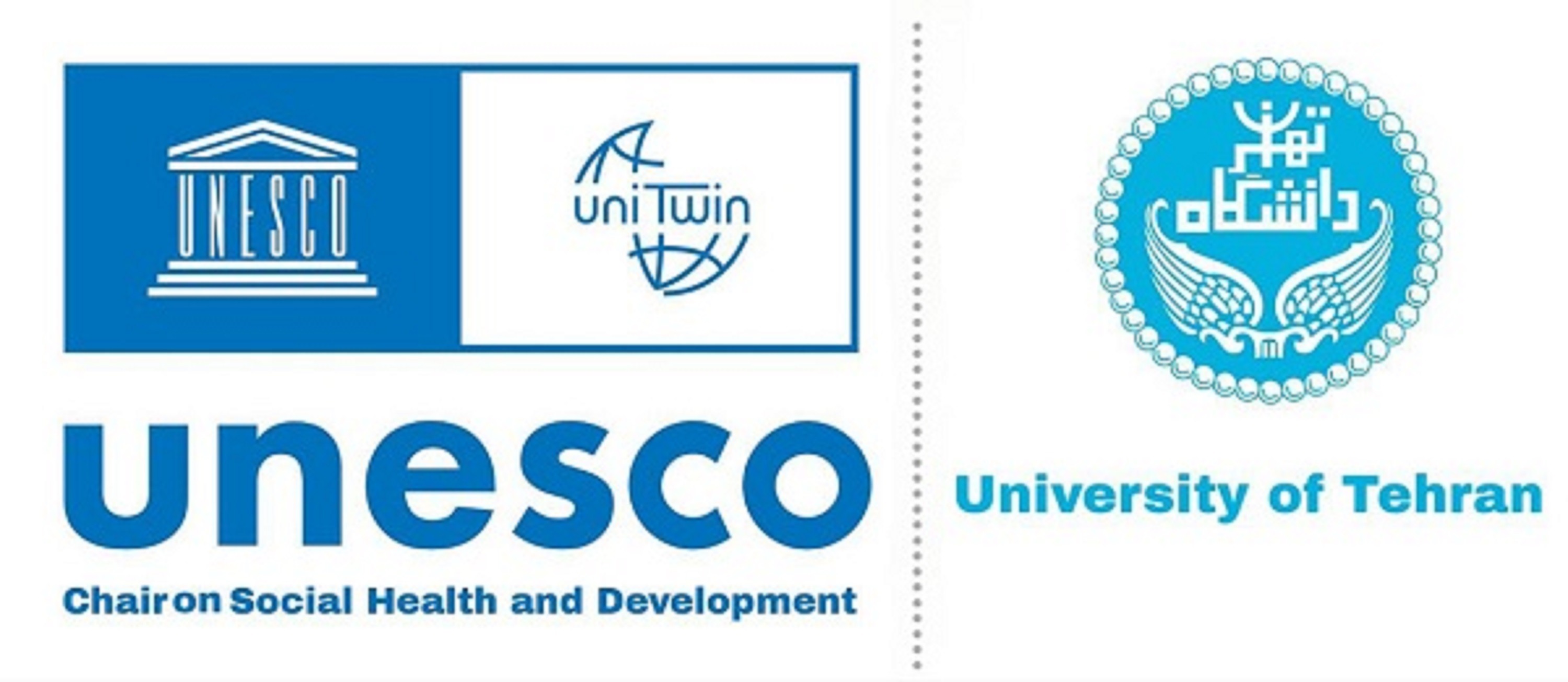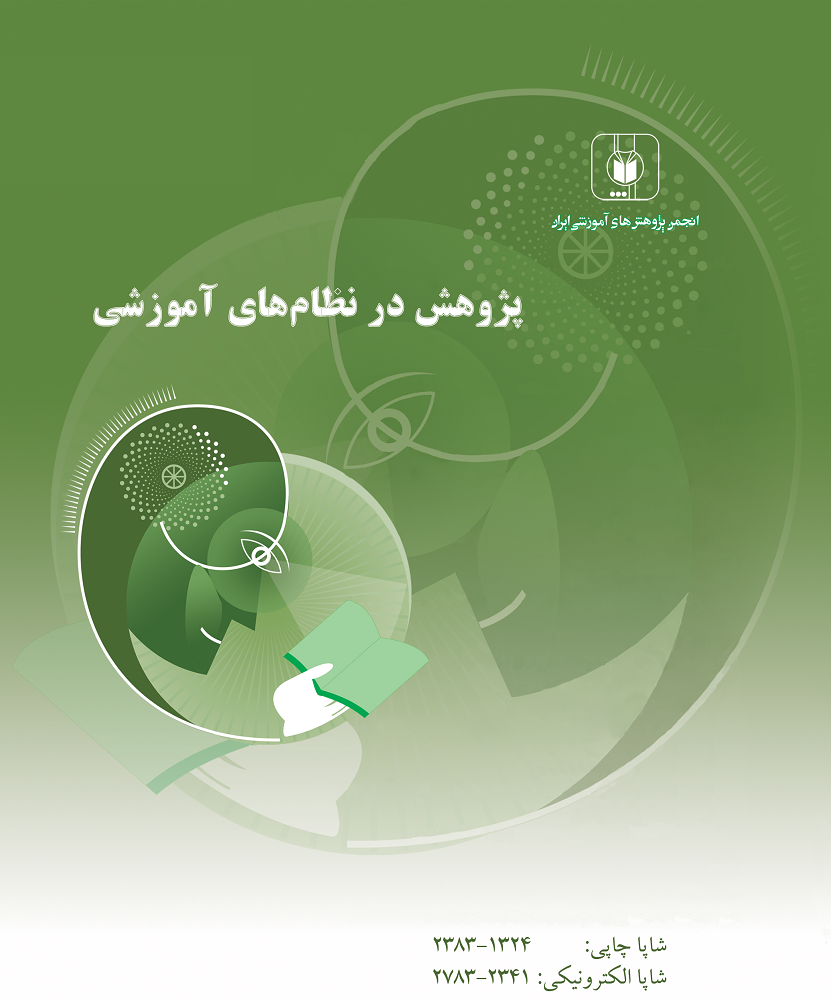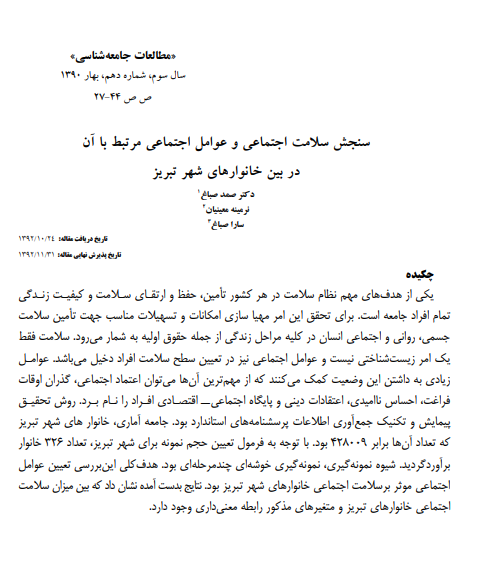Examining the Relationship Between Religiosity and Health - Sociological Studies - کرسی یونسکو در سلامت اجتماعی و توسعه ucshd

Investigating the relationship between religiosity and health (physical, mental, social, spiritual) through the moderating variables of social support and self-esteem - A study among students of Islamic Azad University, Tabriz Branch
Examining the Relationship Between Religiosity and Health - Sociological Studies
01 01 2024 10:33
News Code : 93869062
View Count : 17
Abstract: (Original article)
The present study was conducted with the aim of determining the direct and indirect effects of religiosity on health. The health variable was considered in four dimensions: physical, psychological, social, and spiritual. The indirect effect of religiosity on health was examined through the variables of social support and self-esteem. The theories of Durkheim, Allport, Wilkinson, Pargament, and Coopersmith were used to explain the relationship between the variables under study. The present study was conducted within the framework of the survey method and the necessary information was collected through a questionnaire. Using the Cochran sampling method, 400 students of Tabriz Azad University were selected as the research sample. Pearson correlation test, regression analysis, and path analysis were used to examine the research hypotheses. The results of the Pearson correlation test show that there is a significant correlation between the variables of religiosity, social support, and self-esteem with overall health at a 99% confidence level. The results of multivariate regression analysis show that independent variables explain 15.1% of changes in overall health, 9.4% of changes in physical health, 23.2% of changes in mental health, 12.7% of changes in social health, and 40.2% of changes in spiritual health. The results of path analysis technique also indicate that religiosity does not have a statistically significant direct effect on overall health and social health, and the effect of religiosity on these dimensions is only indirect. These findings confirm the implications of functionalist theories regarding the positive effect of religiosity on social support, self-esteem, and health.
Machine Summary:
"Investigating the Relationship between Religiosity and Health (Physical, Psychological, Social, Spiritual) through the Moderating Variables of Social Support and Self-Esteem - A Study Among Students of Islamic Azad University, Tabriz Branch Majid Pourmajeed 1 Dr. Samad Sabbagh 2 Dr. Mahmoud Elmi 3 Date of Receipt of Article: 24/01/2014 Date of Final Acceptance of Article: 31/03/2014 Abstract Keywords: Introduction One of the major issues that has occupied the human mind since the beginning of history and aroused his curiosity has been the identification of the factors effective in causing disease and the ways to achieve health. Therefore, relying on the existing arguments about the function of religion, the following hypothesis seems completely acceptable that religiosity has a positive relationship with health; Regarding the effect of religiosity on health and the explanation of the mechanism of this relationship, some authors mention social support as one of the most important reasons for the relationship between religion and health, social support is one of the strongest predictors of the feeling of well-being It is psychological, so it seems logical that participating in religious activities with a like-minded community is a source of satisfaction. Being with other people in a supportive and helpful religious context can be considered an important factor in promoting individual health, which is not far-fetched given the negative impact of social support on psychological stress and the immune system. The feeling of social support based on religion, unlike other forms of social support, can increase to the point that many consider it the source of the highest supportive relationship, namely the relationship with God. Melvin Polner argues about the importance of this relationship that believing in being loved by God and receiving spiritual support in this way leads to an increase in individuals' self-esteem and improves their health (Helgcston, 2003).






